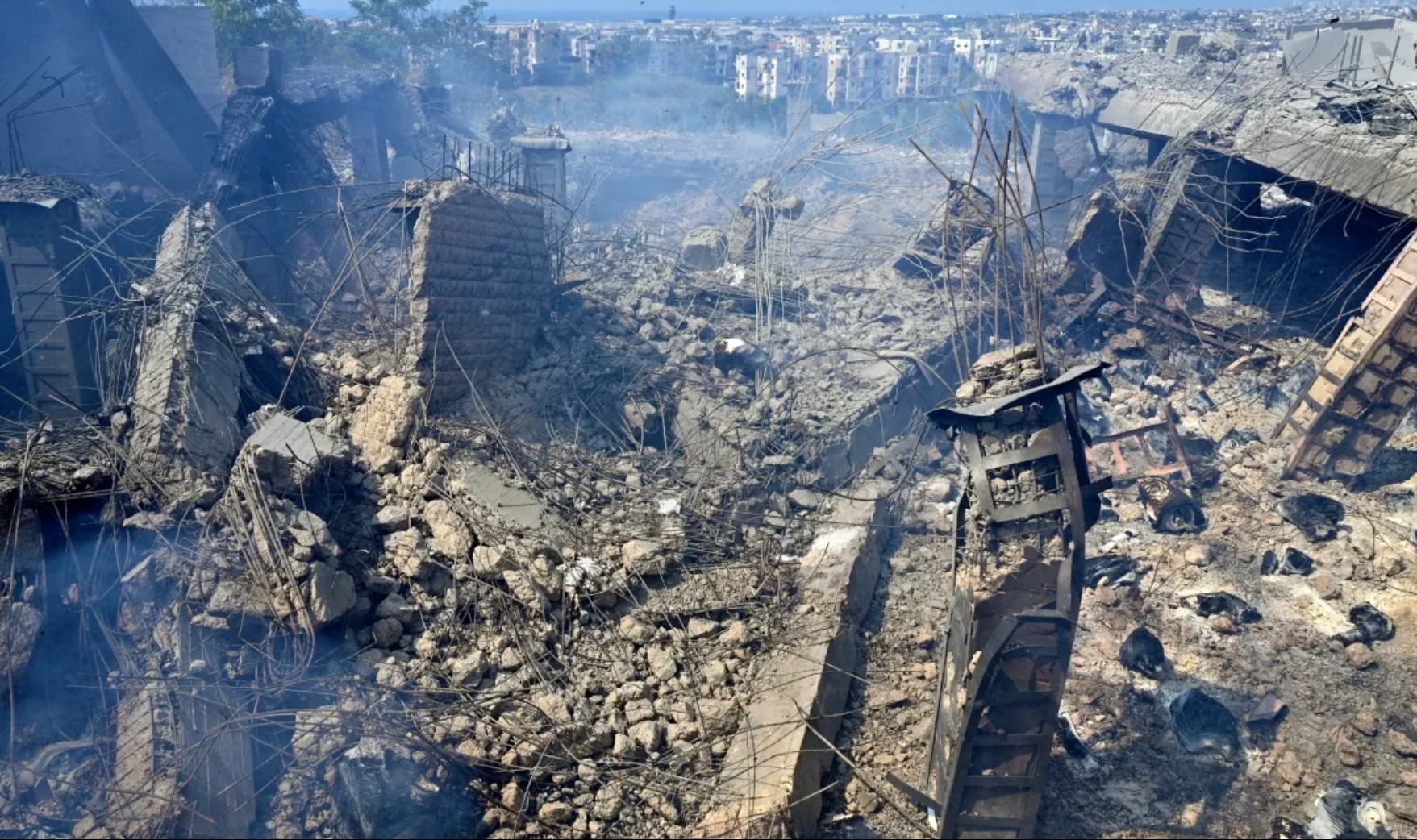
In a dramatic escalation of the ongoing conflict between Israel and Hezbollah, the Lebanese militant group confirmed that its leader, Hassan Nasrallah, was killed in an Israeli airstrike on Friday in Beirut.
This is a significant blow to Hezbollah, which has been led by Nasrallah for over three decades. The Israeli military stated that the airstrike targeted Hezbollah’s command center in Dahiyeh, a suburb in southern Beirut, where Nasrallah and other senior commanders were meeting at the time.
Details of the Strike
The Israeli military launched a precise attack on Hezbollah’s underground headquarters, using bunker-buster bombs that flattened several buildings in the area. The strike not only killed Nasrallah but also claimed the lives of other high-ranking figures, including Ali Karki, commander of Hezbollah’s Southern Front, and an Iranian Revolutionary Guard general, Abbas Nilforushan, known for coordinating operations in the region. The attack reportedly injured 91 people and left six apartment buildings destroyed.
Nasrallah’s Legacy and Hezbollah’s Future
Hassan Nasrallah was more than just the leader of Hezbollah; he was a symbolic figure credited with transforming the group from a local militia into a regional power with a vast arsenal of sophisticated weaponry. Under his leadership, Hezbollah was instrumental in ending the Israeli occupation of southern Lebanon in 2000 and has since played a central role in regional conflicts, often acting as a proxy for Iran.
His death leaves Hezbollah in a precarious position. The group’s leadership structure has been severely damaged by a series of targeted strikes, and the absence of Nasrallah could create a power vacuum. Some experts believe Hezbollah may struggle to mount a coordinated response in the absence of its long-time leader.
Israel’s Strategy and Potential Consequences
Israeli officials, including Chief of Staff Lt. Gen. Herzi Halevi, have hailed Nasrallah’s death as one of Israel’s most significant military successes. Defense Minister Yoav Gallant called the operation “the most important targeted strike since the founding of the State of Israel.” However, the Israeli military has made it clear that this is not the end of its campaign. They have mobilized additional troops to the north and warned of further strikes if Hezbollah continues its attacks.
Israel’s aggressive stance aims to dismantle Hezbollah’s military capabilities, which have been heavily depleted in recent weeks. However, this strategy carries the risk of escalating into a broader conflict that could draw in other regional actors, particularly Iran, which has vowed to support Hezbollah. The airstrikes have already led to mass displacements on both sides, with tens of thousands of Lebanese and Israelis fleeing their homes amid the intensifying violence.
Regional and International Reactions
The impact of Nasrallah’s death reverberated far beyond Lebanon. In Tehran, posters of Nasrallah appeared on major highways, signaling the importance of his role in the region’s resistance movements. Iran’s Supreme Leader Ayatollah Ali Khamenei issued a statement in support of Hezbollah, urging the Lebanese people to stand against Israel. The death of Nasrallah, who was seen as a strategic and sometimes moderating voice within Hezbollah, has raised concerns about the potential for an uncontrolled escalation in the conflict.
The Biden administration, alongside France and other Arab nations, has been working to prevent a full-scale war between Israel and Hezbollah. Diplomatic efforts are ongoing, but with Hezbollah pledging to continue its fight, the potential for a broader regional conflict remains high.
What’s Next?
The death of Hassan Nasrallah marks a pivotal moment in the conflict between Israel and Hezbollah. As the militant group reels from the loss of its leader and faces intense pressure from Israeli military actions, the future of the group—and the region—hangs in the balance. Whether Hezbollah will find a new leader capable of filling Nasrallah’s shoes or if this marks the beginning of the group’s decline is still unclear. What is certain, however, is that this latest development has pushed the region closer to the brink of a wider war.
The next few weeks will be crucial in determining the trajectory of this conflict as both sides weigh their next moves amid mounting casualties and international calls for restraint.
